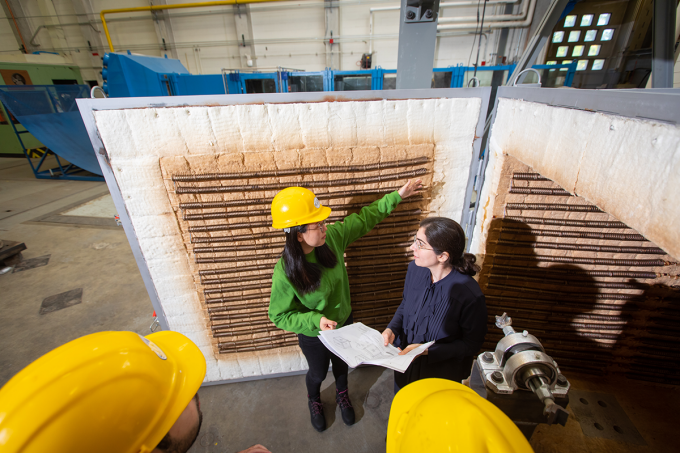Master's Program (MS)

Students pursuing the EWRE degree follow a single set of course requirements with considerable flexibility in selection of elective classes.
Some of the top priorities concerning environmental engineers are the delivery of clean air and drinking water, and the water quality restoration in the Great Lakes and other natural water systems throughout the country. Students who complete the EWRE program will be equipped with the knowledge to handle some of the most pressing matters affecting global public health, water supplies and ecosystem viability through research or professional practice.
Graduates of the EWRE programs contribute to the solution of important environmental problems through careers in research, government, consulting or the private sector. Topics of current interest include the delivery of clean drinking water, treatment of air and wastewater pollutants, and the restoration of the Great Lakes and other aquatic ecosystems.
Students pursuing the Engineering Science MS: Focus on Engineering Sustainability will be equipped with the skills need to have successful careers in different sustainability positions, including, environmental engineers, conservation scientists, environmental specialists, urban planners, community service managers and several other positions.
Visit this link to learn more about Engineering Sustainability
The department offers two Master of Science (MS) degrees: one in Civil Engineering and one in Environmental and Water Resources Engineering, and supports the School of Engineering and Applied Sciences' Engineering Science MS: Focus on Engineering Sustainability
Each 30-credit MS programs consist of three components (described in detail below): required courses, elective courses, and a culminating thesis, project, or exam. To complete the degree, most students choose the “all-course” option, which consists of six credits of focuse area required classes, 24 additional credits of approved elective classes, and a comprehensive exam taken at the end of their final semester.
Students may also complete (in addition to required classes) a 3-credit MS project and 21 credits of electives OR a 6-credit MS thesis and 18 credits of electives. In all cases, the student’s academic advisor must approve the proposed program of study, including all required and elective courses to be counted towards the degree. For the project and thesis options, a CSEE faculty member must agree to serve as the project/thesis advisor.
*Graduate Studies Manual under revision




